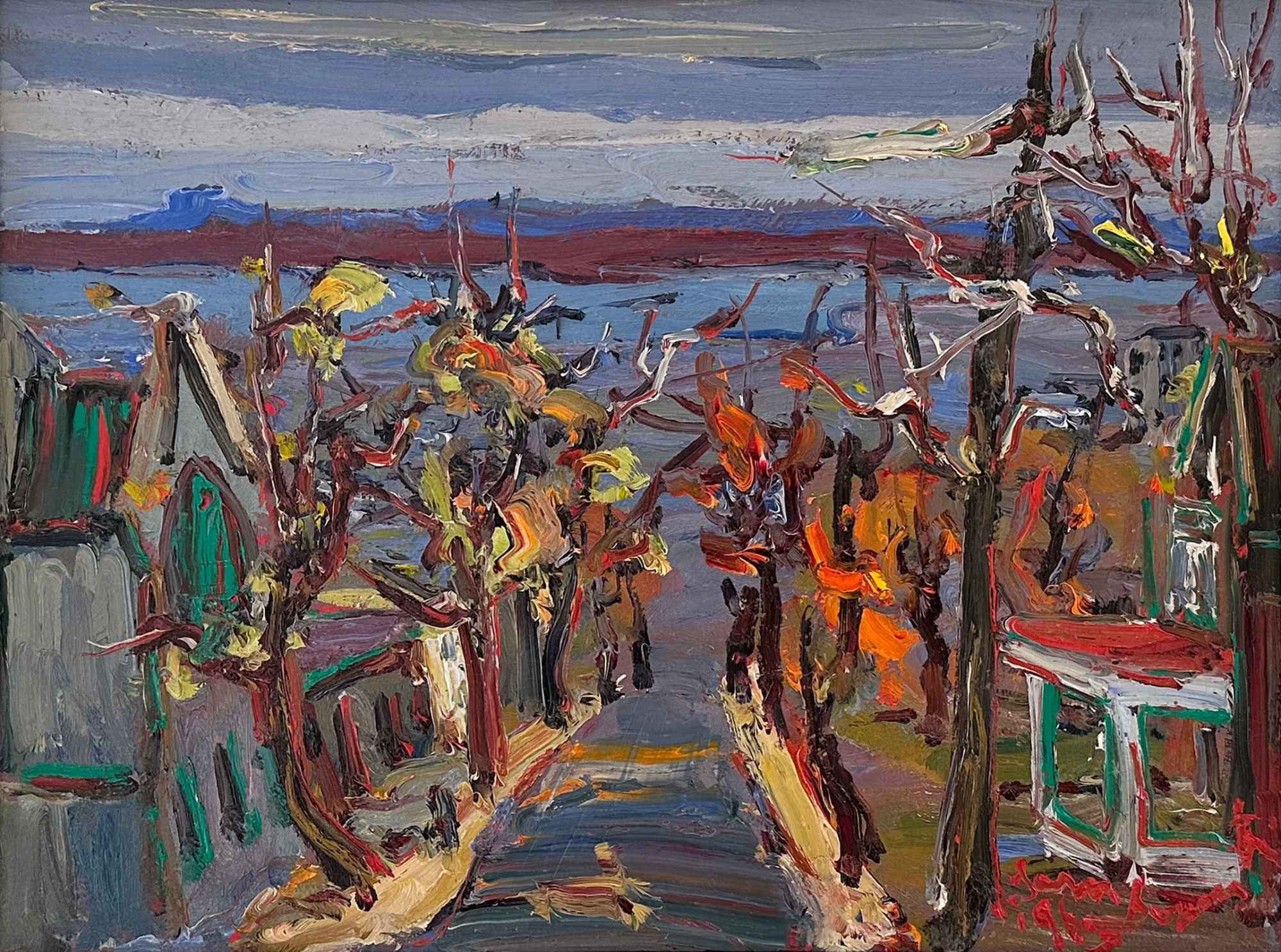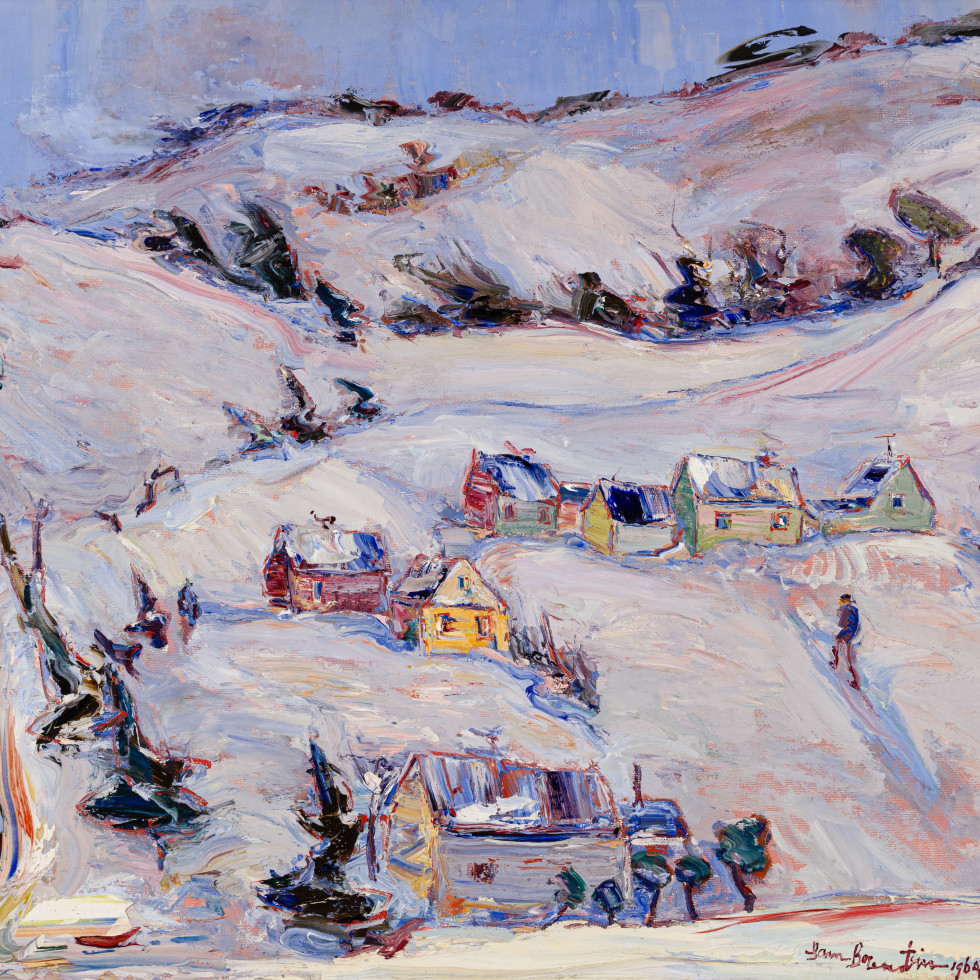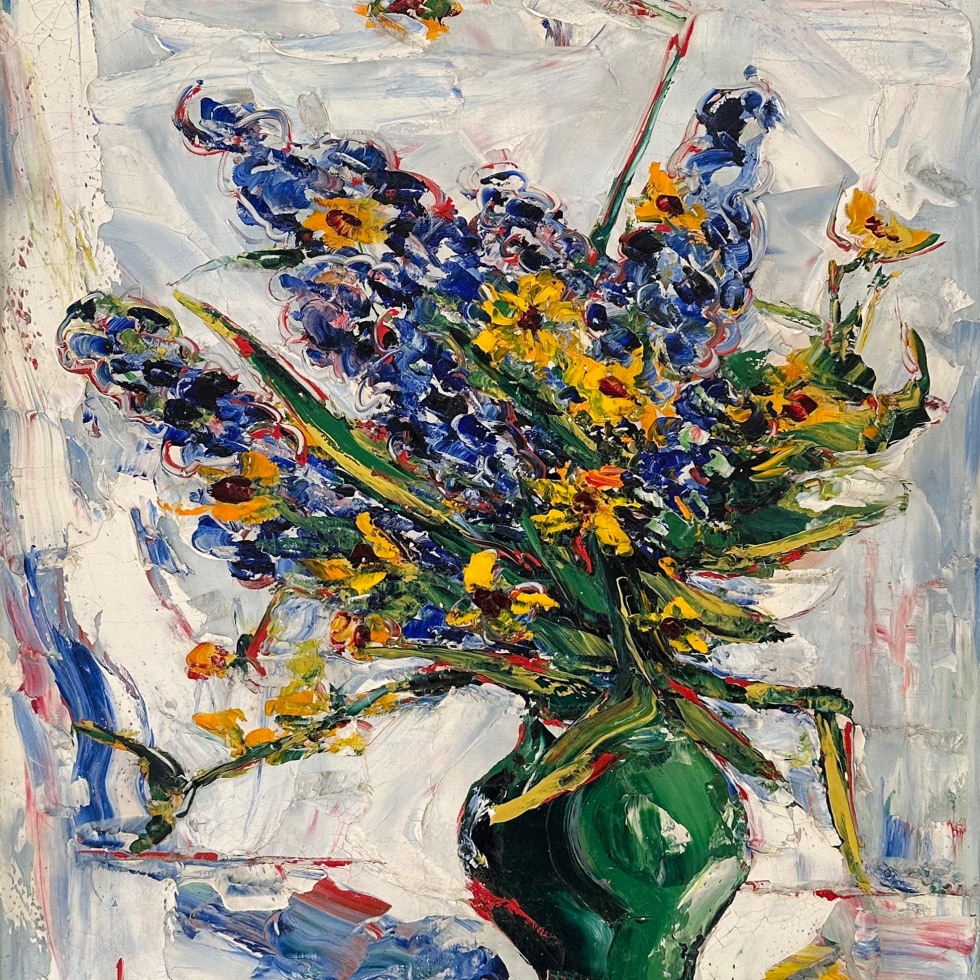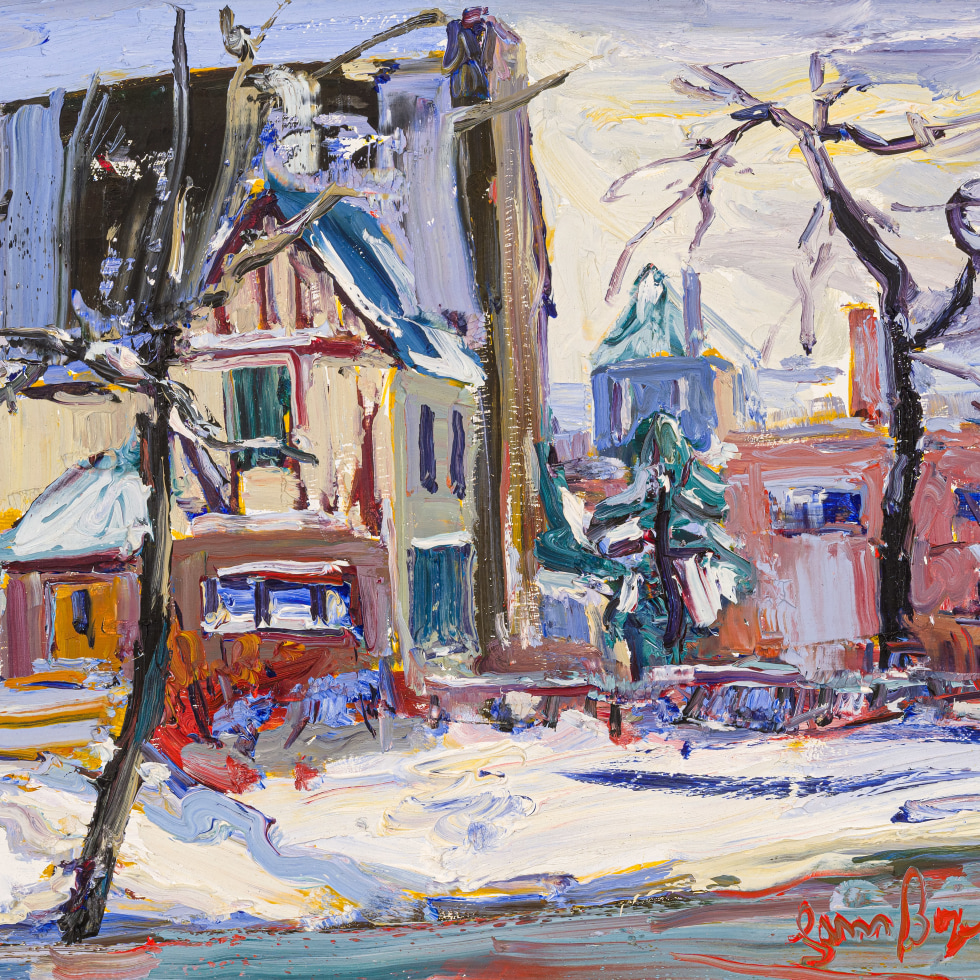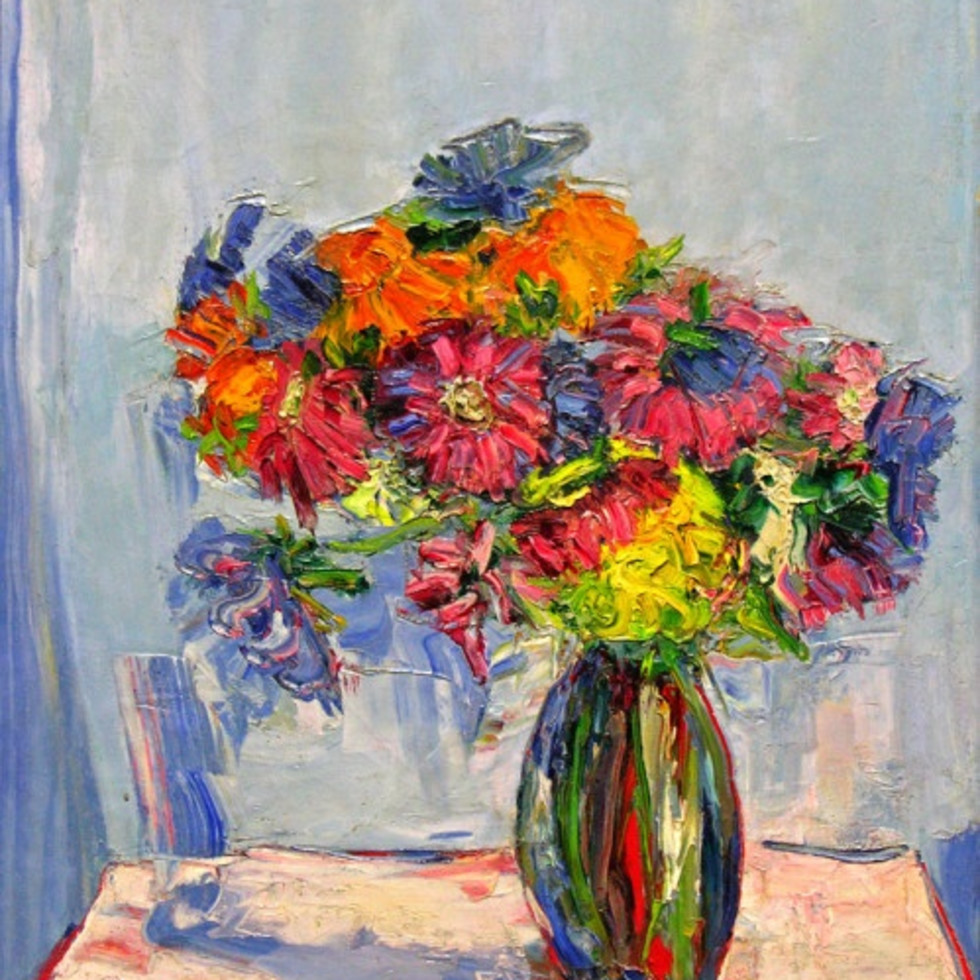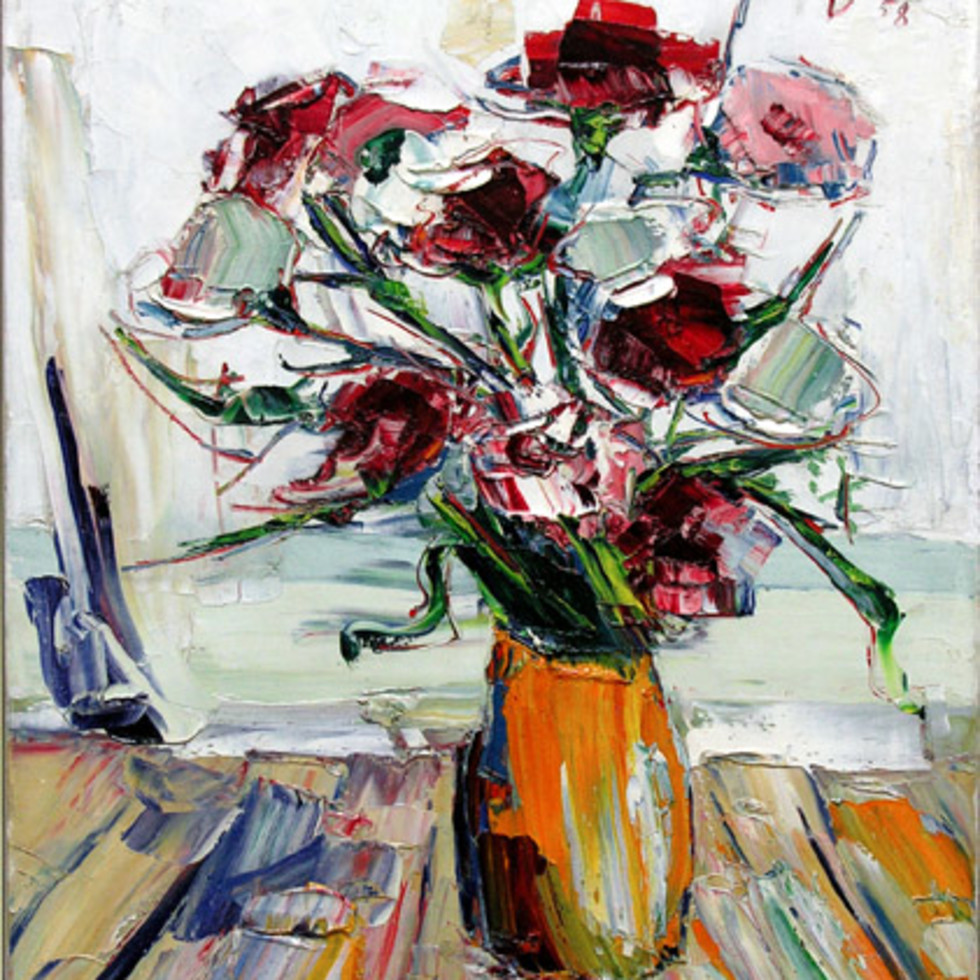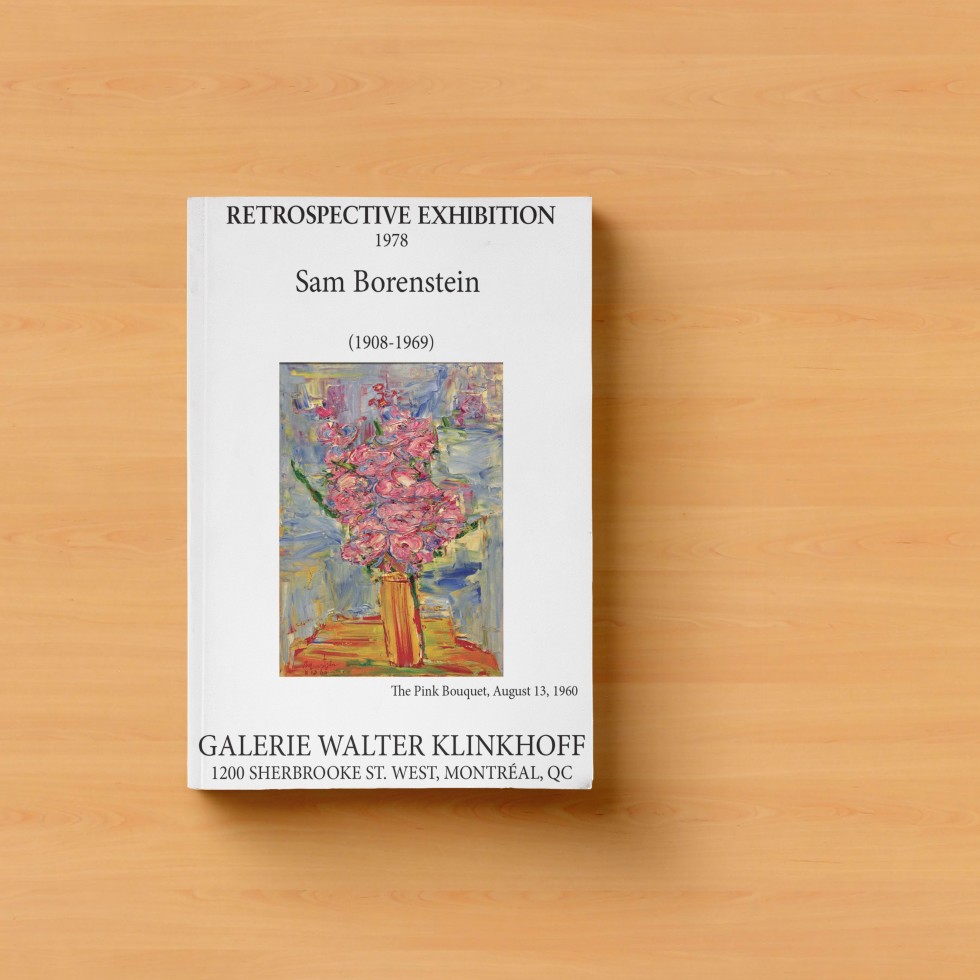Lachine, Montreal, 1967 (October 31)
30.5 x 40.6 cm
Inscriptions
signed and dated, ‘Sam Borenstein / 1967’ (lower right); dated twice, inscribed and signed, ‘OCTOBER 31 1967 / MONTREAL / Sam Borenstein’ (verso)Provenance
Kastel Gallery, Montreal
Galerie Eric Klinkhoff Inc., Montreal, 2014
Private collection, Toronto
In Sam Borenstein (1978), Kuhns writes that in the period of the 1960s, "Borenstein achieved a fresh exuberance - the tumult and exhilaration he had been reaching towards for decades emerged, his paintings burst with gusting energies, which it seemed he had tapped for the first time. Perspective, scale, line, and form, the rudiments he had mastered over thirty years of painting, became seething, elusive elements of a tumultuous vision: a storming of whites and blues, in which a familiar landscape rippled, quaked, and roared from within. His landscapes became portraits of a force as elemental as his own urge to paint; landforms, trees, buildings, and streets, were whipped into a hurricane of colour, fixed somehow painfully, somehow exuberantly, to the canvas. Borenstein's work reached the zenith of intuition and technique he had struggled with for thirty years, and at the age when most artists begin to ease and relax, Borenstein worked more fervidly, more excitedly than he had ever worked before. His confidence in himself, never doubted but never so certain, became a further prod." [1].
It was precisely this era when my father, Walter Klinkhoff, was showing Borenstein’s paintings. He gave “Sam” his first one man show in 1958, then a second one in 1961 and was to have a third show in 1967 but by then Borenstein was also arranging a show in Hamilton, then Toronto, and then Sir George Williams University bought five of his paintings for its collection and with Borenstein's increasingly crippling backaches, this third one person show at Walter Klinkhoff Gallery never materialized. Tragically, the backaches were symptoms of a prostate cancer, diagnosed in the spring of 1967, which left him only another 18 months or so during which he did continue to paint with vigour House on Aberdeen Avenue, Westmount & Montreal, Lachine are exemplary of him at the pinnacle of his painterly ability.
_________________________________
Footnote:
[1] William Kuhns, “A Biographical Sketch,” in Sam Borenstein,ed. William Kuhns and Léo Rosshandler (Toronto: McClelland and Stewart, 1978), 62.




